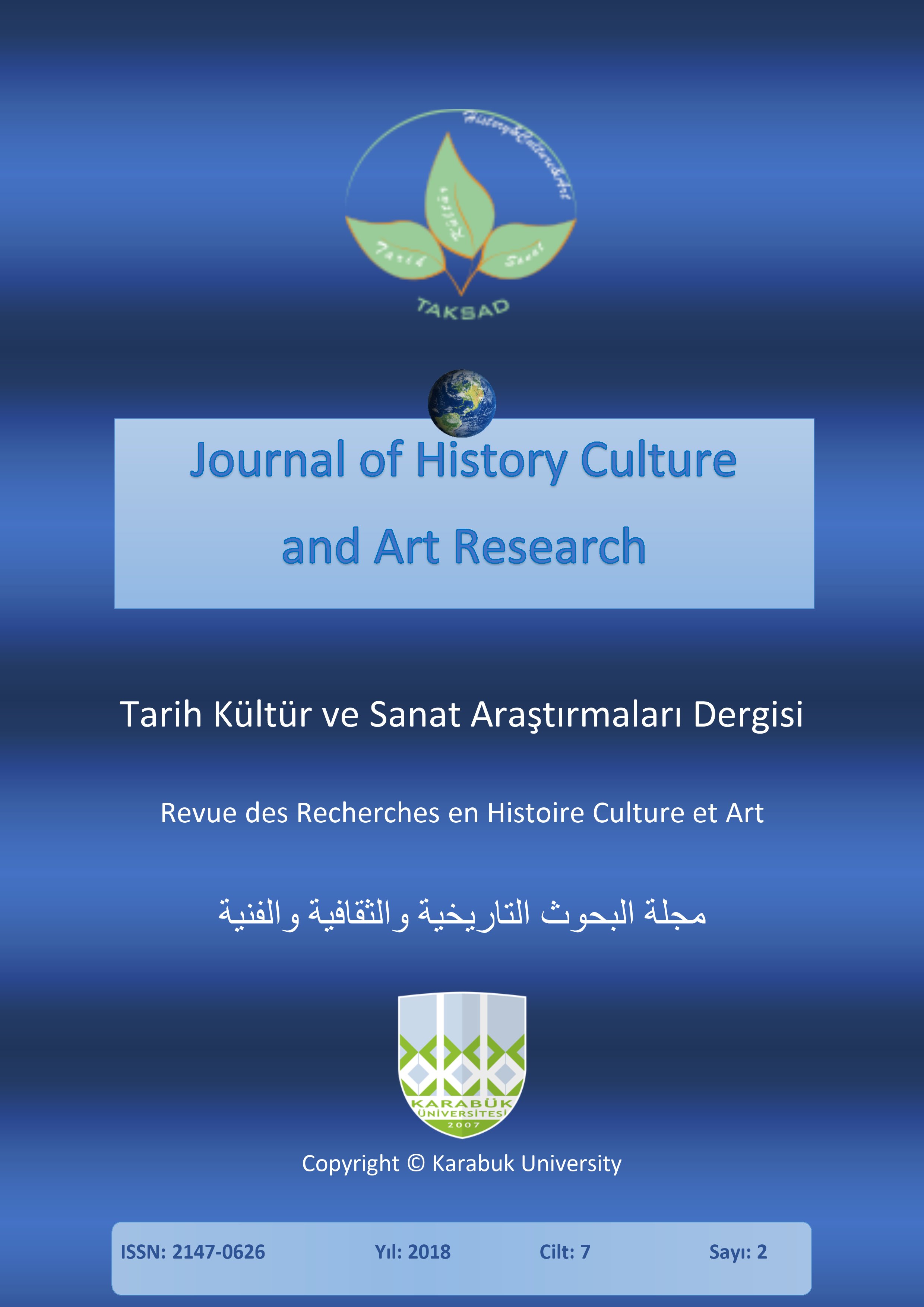Strategies of Discourse Modeling
DOI:
https://doi.org/10.7596/taksad.v7i2.1603Keywords:
Discourse, Political discourse, TV-discourse, Socio-cultural model.Abstract
Contemporary discourse modeling is the complex research methodology having many scientific algorithms. Every step of this discourse modeling methodology has the specific scientific purpose. The unity of these scientific purposes is the base to identify discourse modeling evolution steps. Modeling of political discourse and TV-discourse as the most manipulative discursive types realizes so important scientific problems to create socio-cultural model of society. The discourse model of society discovers reasons and results of transformation in discourse formations. Our discourse modeling methodology is discovering the specific feature of transformation in political discourse and TV-discourse’s formations. The majority of discursive modeling strategies are based on the socio-cultural factors, and it should be noted that both the political and movie discourses are interrelated with them, and most frequently represented as cultural realities in discursive modeling. Formulation of discourse modeling strategies is one of the ways to identify the specific features of evolution’s steps onto discourse socio-cultural model`s development.
References
Alefirenko, N. F. (2009). Zhivoe slovo: problemyi funktsionalnoy leksikologii: monografiya. M. Flinta: Nauka. (in Russian).
Bogachev, R. E.; Musaelian, E. N.; Miroshnichenko, L. N. & Yarygina, O. N. (2015). The Notion Interconnections of “Os-Drihten” Within One Conceptual Meaning. The Social Sciences, 10: 1135-1137.
Crowhurst, M. & Emslie, M. (2018). Discourse Analysis. In: Working Creatively with Stories and Learning Experiences. Creativity, Education and the Arts. Palgrave Macmillan, Cham.
Dem'jankov, V. Z. (2007). Tekst i diskurs kak terminy i kak slova obydennogo jazyka. IV Mezhdunarodnaja nauchnaja konferencija «Jazyk, kul'tura, obshhestvo». Moskva. pp. 86-95. (in Russian).
Edberg, H. (2018). Text as a Site of Negotiation: A Model for Text Analysis. In: Creative Writing for Critical Thinking. Palgrave Macmillan.
Gee, J. P. (2014). An Introduction to Discourse Analysis: Theory and Method (4th ed.). Routledge.
Jaworski, A. & Coupland, N. (Eds.) (2014). The Discourse Reader (3rd ed.). London; New York: Routledge.
Karasik, V. I. (2000). O tipah diskursa. Jazykovaja lichnost': institucional'nyj i personal'nyj diskurs: sb. nauch. tr. Volgograd: Peremena, pp. 5-20. (in Russian).
Karasik, V. I. (2000). O tipah diskursa. Jazykovaja lichnost': institucional'nyj i personal'nyj diskurs: sb. nauch. tr. Volgograd: Peremena, pp. 5-20. (in Russian).
Ogneva, E. A. (2015). Transformacija diskursivnoj modeli sociuma: problemy i perspektivy. Riski v izmenjajushhejsja social'noj real'nosti: problema prognozirovanija i upravlenija. Voronezh: OOO «PT», pp. 569-573. (in Russian).
Ogneva, E. A. (2015). Transformacija diskursivnoj modeli sociuma: problemy i perspektivy. Riski v izmenjajushhejsja social'noj real'nosti: problema prognozirovanija i upravlenija. Voronezh: OOO «PT», pp. 569-573. (in Russian).
Ogneva, E. A.; Danilenko, I. A.; Kireeva, Ya. I. & Kutsenko, A. A. (2015). Interpretative Model of Linguacultural Knowledge. The Social Sciences, 10: 1101-1106.
Reiss, T. J. (2018). The Discourse of Modernism. Cornell University Press.
Revzina, O. G. (2005). Diskurs i diskursivnye formacii. Kritika i semiotika. Vyp. 8, pp. 66-78. (in Russian).
Shevchenko, I. S. (2017). Konceptualizacija kommunikativnogo povedenija v diskurse; glava v kn. Kak narisovat' portret pticy: metodologija kognitivno-kommunikativnogo analiza jazyka: kol. Monografija. Bondarenko, E.V., Martynjuk A.P., Frolova I.E., Shevchenko, I.S., Har'kov: HNU im. V.I. Karazina. (in Russian).
Usmanova, A. R. (2001). Diskursija. Postmodernizm. Jenciklopedija. Mn.: Interpresservis. (in Russian).
Venhuizen, N. J.; Bos, J.; Hendriks, P. & Brouwer, H. (2018). Discourse Semantics with Information Structure. Journal of Semantics, 35, 127-169.
Downloads
Published
How to Cite
Issue
Section
License
All papers licensed under Creative Commons 4.0 CC-BY.- Share — copy and redistribute the material in any medium or format
- Adapt — remix, transform, and build upon the material for any purpose, even commercially.
Under the following terms:
Attribution — You must give appropriate credit, provide a link to the license, and indicate if changes were made. You may do so in any reasonable manner, but not in any way that suggests the licensor endorses you or your use.
- No additional restrictions — You may not apply legal terms or technological measures that legally restrict others from doing anything the license permits.







